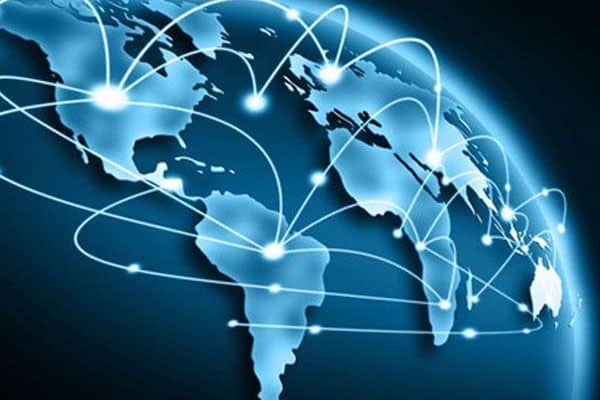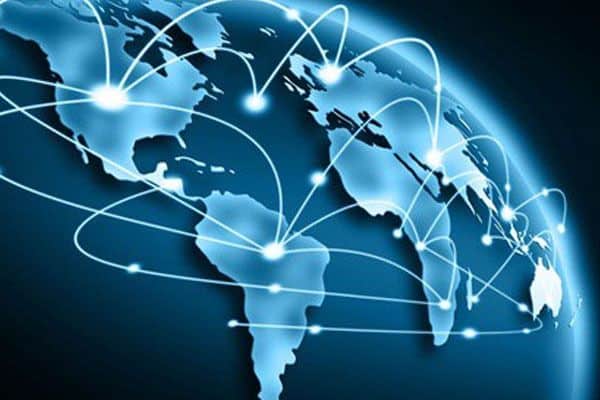Branding In The Era Of Ecosystems

About The Brand Enabled Podcast & all episodes
I’m joined by Dr. Marcus Collins. It’s good to have you on the show. I’m thrilled to be here talking about how people are managing brands and digitally enabling them. Maybe tell us a little bit about yourself, what you’re doing and what’s happening for you and your life.
I had the fortunate pleasure of having a foot in two different worlds. I’m a marketing professor at the Ross School of Business University of Michigan but I’m also the Head of Strategy at Wieden+Kennedy in New York, where I get to put ideas in the world but also as academia, get to put people in the world. At its core, bridging the academic-practitioner gap, things that we rigorously interrogate on the academic side and thinking about the application of the practice on the practitioner side. The thing I’m most excited about is school starting, which is awesome. Lots of cool things happened with our clients. Also, I’m releasing my first book in May 2023 called, For the Culture.
We’ll look for it on Amazon for sure. I’ll pre-order. It’s a wonderful thing to have an academic background and then to be a practitioner. Anyone who goes to your website is going to see how much you’ve done with brands and different things that you’ve influenced not only in thought works but actual results. Tell us the biggest thing you’re working on digital enable brands and what you see as the challenges for the marketers that are out there.
All the brands that I’ve worked with live in the world. The world we live in is networked. We live in a digital world. One described it as a paradigm in which the extraction and manipulation of information are where the privileged position and economic position sit. When I talked to my clients about how we leverage digital, it first requires understanding what digital is. I think about digital as a technology that generates processes and stores data in the form of 0s and 1s. We call it digital because it’s made up of digits, generating, storing and processing data in form of 0s and 1s.
Just because we have information about people doesn’t mean we know them. It doesn’t mean that there’s intimacy.
What makes digital powerful is not that it generates, stores and processes data in 0s and 1s but it facilitates the network of other things that generate, process and store data in the form of 0s and 1s. The network of things is two devices. The network of people and things, devices and people in dialogue. Also, that network of people like social networking platforms and the like. I don’t know how a brand thrives in a world that is not connected. We often talk about digital 1.0, the digitalization of something like a bolt-on. When you add digital to what you do, you survive.
If you didn’t have a website before COVID or you didn’t have delivery with your restaurant before COVID, you were in an improved-up shape. When you add those components to it, you’re able to survive COVID. Companies that had built an ecosystem where things are networked were able to thrive to take a leap step forwards. The idea with our clients and our students and people that I get to talk to around the world around these ideas is how we design for the network world as opposed to the digital world.
It’s a different concept. There’s so much you have to do to participate in a network, to build it and to build trust and authenticity. You’ve got great stuff on your site about Photoshop. One of the quotes that I leveraged in my thinking about this show was when you were talking about information and intimacy are not analogous. There’s all this stuff happening but there’s a transformation. You have a clue too because of that.
The information that we have access to has grown exponentially. We have reams of information on people. However, just because we have information about people doesn’t mean we know them. It doesn’t mean that there’s intimacy or proximity. To your point, digital are digits. Networks are like invisible webs of trust. They’re covalent bonds of trust and reciprocity. Establishing trust to build these links of reciprocity requires intimacy, closeness and proximity.

Branding: To make meaning requires understanding who they are. So often, we mistake information for intimacy, which is why a lot of marketers today still struggle to understand their consumers.
The job of marketers in using this information that’s available to us is going deeper to understand people, not who they are on the surface, their hardware but who they are, whether they’re software, what’s internal, what guides, what they do and the cultural practices that govern their behavior. Any data available to us helps us understand and observe that but to make meaning requires understanding who they are. Often, we mistake information for intimacy, which is why a lot of marketers still struggle to understand their consumers.
I once had a global analytics practice. Part of the blogging material I would produce was on how to help data scientists have a career. My company was like, “Why are you writing about that?” You’ve said the important word. There’s reciprocity in knowing the human story. People were worried about their careers. They were on the line with ideas and truth that maybe not everyone wanted to hear. We’re used to charging for giving instead of giving so we can have the value exchange. Does that resonate with you and the way you think about things?
Yes. I was teaching this for our online MBA course. I was telling my students, “The way you benefit from the network where you benefit from the collective is to give.” Tony Robbins said this before, “The only way our relationship last is if you see it as a place to give, not a place to take.” When you contribute to the network, it’s how you’re able to benefit from it. If the only time you hear from me is when I’m asking you for something, you go, “I’m friends with this guy.” If I call you up and say, “I saw this cool thing I think you would love,” you go, “Thank you so much for thinking of me.”
I’m giving it to you. I’m not giving it to you waiting for you to return to me. I’m giving it to you because someone has given it to me. That’s what reciprocity is or the pay it forward. The idea that parallels digital and how marketers interact with this digitally enabled network is that when we go to the network, people and the ecosystems as ways to provide to it, people go, “Thank you so much.” They tell people about you. There’s this great tweet that I love that says, “I tell my friends about your brand not because I like your brand but because I like my friends.”
Our relationship lasts only if you see it as a place to give, not a place to take.
I tell my friends about it because I want them to benefit from it. I’m telling you about a new movie I saw not because I want the director to make a whole bunch of money but because you could benefit from it. What happens is you see it and you go, “That guy, Marcus, has got the best recommendations. That’s my guy.” I get social capital from that, which creates dopamine inside of me to want to continue to do this.
We are biologically wired to help each other. Some neurochemicals are constantly flooding like serotonins and oxytocin that help drive us to move. Even the things like dopamine are done so that we can contribute to the thing that keeps us going. Anthropologists argue that the reason why we’re able to evolve as a species is our ability to cooperate and socialize. We’re social creatures by nature.
I imagine you, Wieden+Kennedy, in a big room trying to change the corporate neuroplasticity and say, “You have to give first and then you’ll get.” How do you manage that? How do you get brands and finance people to believe in that? It’s almost counterintuitive to the way business would conceit.
It is a challenge but our clients at Wieden are cut from different cloths. Some of this is not only because of who they are but also who the organization is. We have the great luxury. We choose the clients we want to work with and who we want to be partners with. Is that a transactional relationship for us? Even though there is a money exchange, we’re buying into them like they are us. We feel like we’re in the throes with them. We choose the clients where we say, “We like those people. We believe in their ambition. We thought they could achieve something greater than selling widgets.” It’s not to be highfalutin or not being self-aware if we know what we’re in the business of doing but those are the things we feel that were meaningful.

Branding: We should be enabling ourselves for the network world in which we benefit from the network by contributing to the network.
We’re talking to those clients. They’re already curious. They have a want or need to do something greater than what they already have done. Like a brand like McDonald’s, that realized the power of fandom. You give to the fans and the fans will give to you. If you celebrate the fans, they’ll celebrate you. McDonald’s is benefiting it in great measures by this level of reciprocity.
You aren’t just in a position. You’ve built up equity over time that we want to believe in our brands and we want our brands to believe in us. That’s the equity exchange that builds great brands. Both for our agency readers and our brands, that is not a currency exchange you can escape. In the digital world, you have to be able to lead with love. You have to give first and then usually get the refunds or returns on that. My final question is simple. If you think about digitally enabling a brand, what’s the one word that you would think of? Why do you think of it?
Digitally enabling a brand is a word we’ve been using this whole time. It’s facilitating the network. It’s not the network. Digitalization is digital 1.0. It’s taking something that was in one tangible medium and turn into 0s and 1s. That’s great and cool. That’s all good. When we enable those 0s and 1s to be networked and exchanged with other disparate things, it’s the connections that create so much value as it does for us as human beings.
When we are networked, we create so much value. We’re better together. One philosopher by the name of Professor Prince Rogers Nelson said, “Dearly beloved, we gathered here to get through this thing called life.” We’re all here together. It’s togetherness. Our things work better together as people work better together. As marketers navigate this digital world that we live in and try to enable our brands for a digital world, I would argue that we should be enabling ourselves for a networked world and a world in which we benefit from the network by contributing to the network.
It’s the connections that create so much value.
Marcus, it’s nice to have you on the show. Thank you very much for being here. Do you want to say goodbye to the crowd?
Thank you so much. I hope this was helpful.
It was. I’m sure everyone will get something from it. You all have a nice time. See you next time at the show.
Important Links
About Dr. Marcus Collins
 Dr. Marcus Collins is an award-winning marketer and cultural translator with one foot in the world of practice—serving as the Chief Strategy Officer at Wieden+Kennedy New York—and one foot in the world of academia—as a marketing professor at the Ross School of Business, University of Michigan.
Dr. Marcus Collins is an award-winning marketer and cultural translator with one foot in the world of practice—serving as the Chief Strategy Officer at Wieden+Kennedy New York—and one foot in the world of academia—as a marketing professor at the Ross School of Business, University of Michigan.